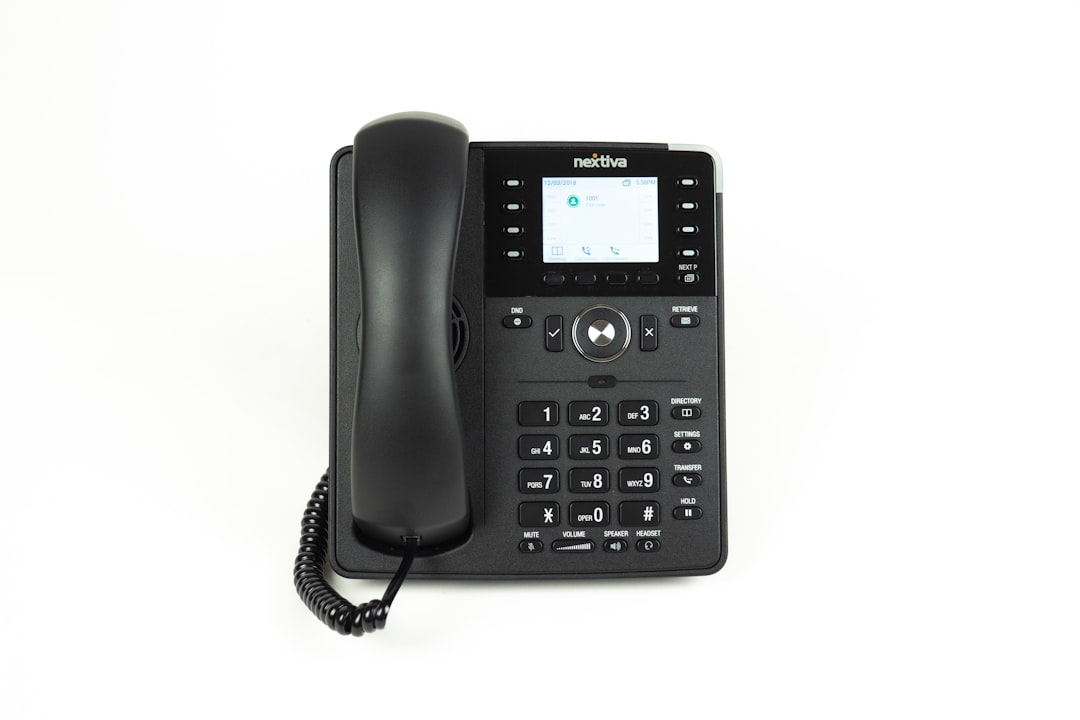The rise of online shopping has transformed consumer behavior, shifting from traditional brick-and-mortar stores to digital platforms. This shift has intensified competition among businesses, leading to innovative marketing strategies and, unfortunately, an alarming increase in spam calls due to easily accessible consumer data. The Telephone Consumer Protection Act (TCPA) safeguards consumers nationwide from unwanted phone marketing. A lawyer for TCPA Chicago is crucial for guiding individuals and companies to comply with these regulations, avoiding fines, and ensuring privacy. By educating themselves about the TCPA and employing call-blocking tools, consumers can protect their well-being in the digital age.
The surge in online shopping has significantly altered consumer behavior, leading to a corresponding rise in spam calls. This article delves into the intricate relationship between e-commerce growth and unwanted telemarketing calls. We explore how the exponential increase in digital transactions has made consumers more susceptible to spamming, focusing on Chicago’s legal framework under the TCPA. Understanding these dynamics is crucial for both consumers and a lawyer for TCPA Chicago seeking effective strategies to mitigate this growing problem.
Understanding the Rise of Online Shopping and Its Impact on Consumer Behavior

The rise of online shopping has transformed the way consumers purchase goods and services, offering unprecedented convenience and accessibility. With just a few clicks, individuals can browse through countless products, compare prices, and make purchases from the comfort of their homes. This shift towards e-commerce has significantly impacted consumer behavior, with many preferring the speed and ease of online transactions over traditional brick-and-mortar stores. As more businesses establish an online presence, the competition for customers intensifies, leading to innovative marketing strategies.
However, this surge in online shopping has inadvertently contributed to a parallel increase in unwanted spam calls. With consumer data becoming more readily available due to online forms and purchase history, spammers can target individuals with precision. A lawyer for TCPA Chicago may be of interest to those seeking recourse against these intrusive practices, especially as consumer privacy becomes an increasingly important concern in the digital age.
Examining the Connection Between E-commerce Growth and Spam Calls

The rise of e-commerce has undeniably led to a significant shift in consumer behavior, with an increasing number of people opting for online shopping due to its convenience and accessibility. However, this growth in digital retail also appears to have fueled another unwanted trend—the surge in spam calls. As more businesses establish their presence online, the competition for consumer attention intensifies, leading some entities to resort to aggressive marketing tactics, including making unsolicited phone calls.
This phenomenon raises important questions about the interconnection between e-commerce expansion and the rise in spam calls. The Telephone Consumer Protection Act (TCPA) in Chicago and across the nation aims to curb such practices by providing consumers with protections against unwanted phone marketing. As online shopping continues to dominate, it is crucial to examine how e-commerce giants and smaller businesses alike navigate these regulatory boundaries to ensure fair and legal marketing strategies, ultimately fostering a healthier consumer experience free from intrusive spam calls.
The Legal Perspective: How the TCPA Regulates Unwanted Calls in Chicago

In the legal realm, the Telephone Consumer Protection Act (TCPA) serves as a powerful tool to combat unwanted phone calls, including spam and telemarketing, in Chicago and across the nation. This federal law was enacted to protect consumers from excessive or intrusive telephone marketing practices. A lawyer for TCPA Chicago can guide individuals and businesses on adhering to these regulations, which strictly limit the number of automated calls or prerecorded messages a company can make without prior express consent.
The TCPA holds that businesses must obtain explicit permission before placing any call using an automatic dialing system or pre-recorded messages, ensuring consumers’ privacy and peace of mind. Violations of this law can result in significant financial penalties for offenders, making it crucial to consult a legal expert specializing in TCPA Chicago regulations to ensure compliance and protect oneself from potential legal issues arising from excessive spam calls.
Delving into the Motives Behind Spam Calling and Its Financial Implications

Spam calls, or unsolicited telephone marketing calls, have become an increasingly prevalent nuisance in our digital age. As online shopping continues to grow in popularity, so does the frequency of these intrusive calls. The question arises: what motivates businesses to engage in such practices?
One of the primary reasons is the quest for profit. Companies, especially those operating within heavily regulated industries like telecommunications, often find themselves relying on aggressive marketing strategies to boost sales. In the United States, the Telephone Consumer Protection Act (TCPA) restricts certain forms of telemarketing, but businesses still employ loopholes and less-regulated methods to reach potential customers. A lawyer for TCPA Chicago can shed light on these complexities and help consumers understand their rights. The financial implications of spam calls are significant; it not only causes frustration and inconvenience but also leads to increased consumer complaints and legal repercussions for non-compliant businesses.
Protecting Consumers: Strategies to Reduce Spam Call Frequencies for Online Shoppers

Online shopping has become a ubiquitous part of modern life, but it’s not without its downsides. One growing concern is the correlation between increased online activity and a higher frequency of spam calls. This issue significantly impacts consumers’ well-being, especially when personal information is involved. To mitigate this problem, several strategies can be employed to protect online shoppers from unwanted telemarketing calls.
Consumers can start by educating themselves about privacy laws, such as the Telephone Consumer Protection Act (TCPA), which restricts the number of automated phone calls and text messages sent for marketing purposes. Engaging a lawyer specializing in TCPA Chicago can also help individuals assert their rights and take legal action if necessary. Additionally, using call-blocking apps or adjusting phone settings to restrict certain numbers is an effective way to reduce spam calls.






